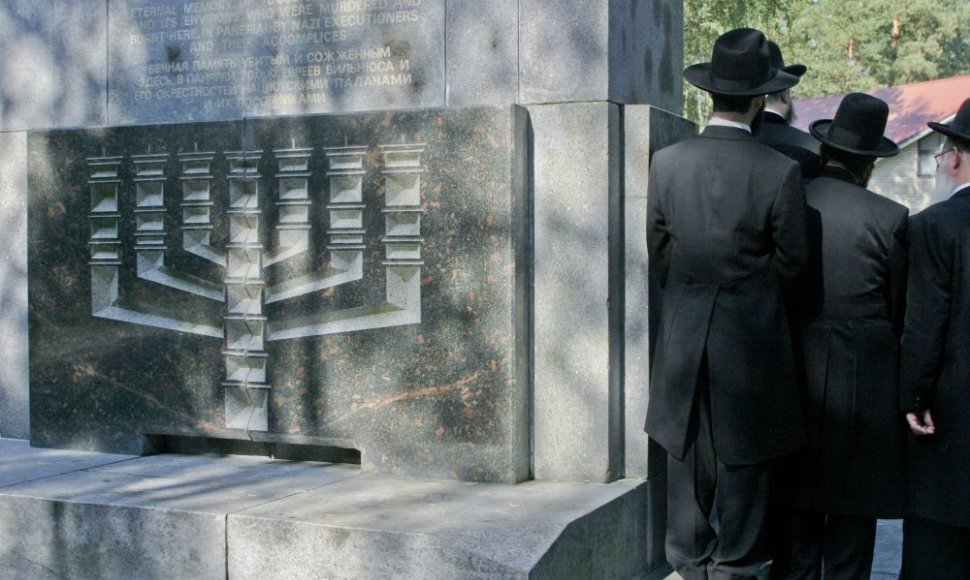A memorial event later took place at the Paneriai Memorial.
Attending the event, Lithuania's Minister of Foreign Affairs Linas Linkevičius said that the tradition of Marches of the Living is "a reminder of our common history that it should never happen again."
"Unfortunately, Paneriai is not the lightest spot on the map. It's a painful topic in the history of the Holocaust. We have to know this. It's a big sore which is also an integral part of our history," the minister told journalists in Paneriai.
"A group of people has been coming from Israel for the last five years, there are also Vilnius residents, residents of Vilnius Region, war victims or their relatives. The March of the Living means that we don't forget either victims or those who fought the Nazi regime, and we hope that this will never happen again," Faina Kuklyansky, acting chairwoman of the Jewish Community of Lithuania, told journalists.
Former prisoners of Vilnius ghetto and their descendants, members of Vilnius Jewish community were organizers and participants of the march.
"I come here every year. My parents and grandparents are from Lithuania, but I'm from Israel. Our family lived in Vilnius. My aunt with her family was killed here, in the Holocaust. If you don't have the past, you don't have a future. So it is important to know about your roots," march participant Lea from Israel told BNS.
More than 90 percent of Lithuania's pre-war Jewish population of over 200,000 were murdered during the Nazi occupation.












